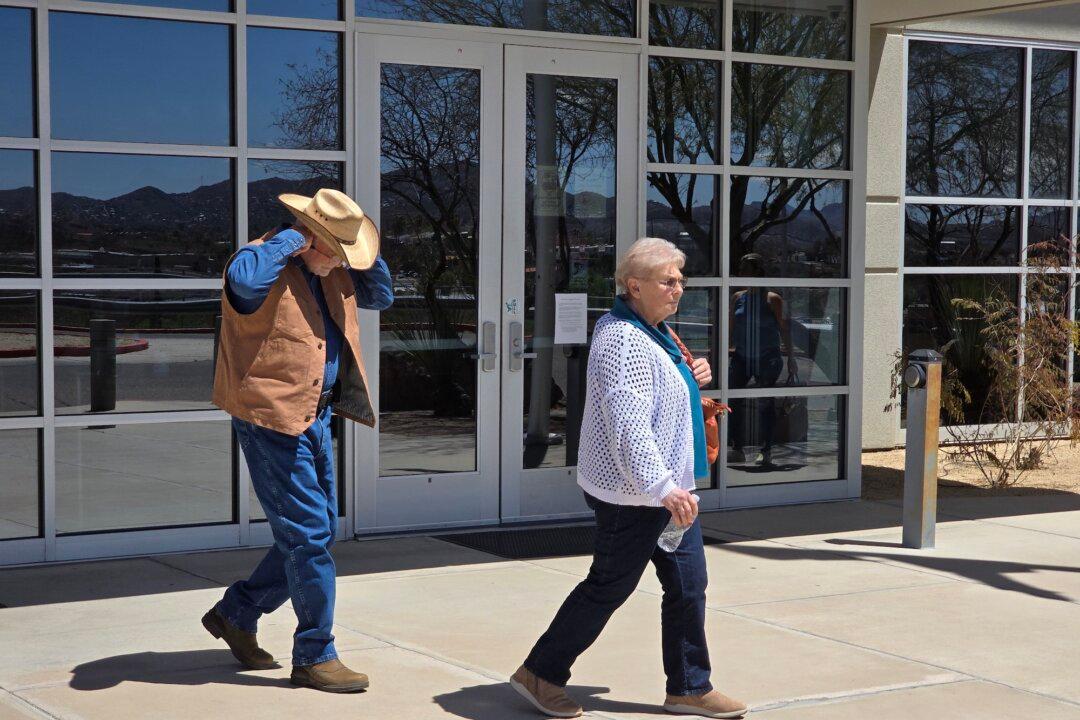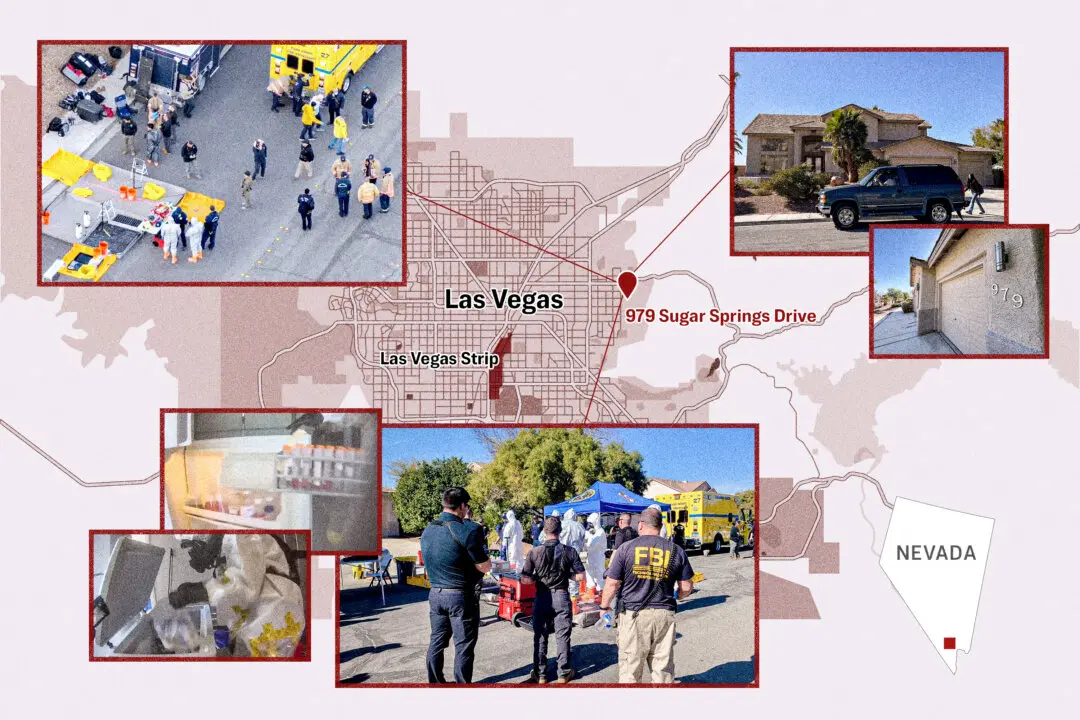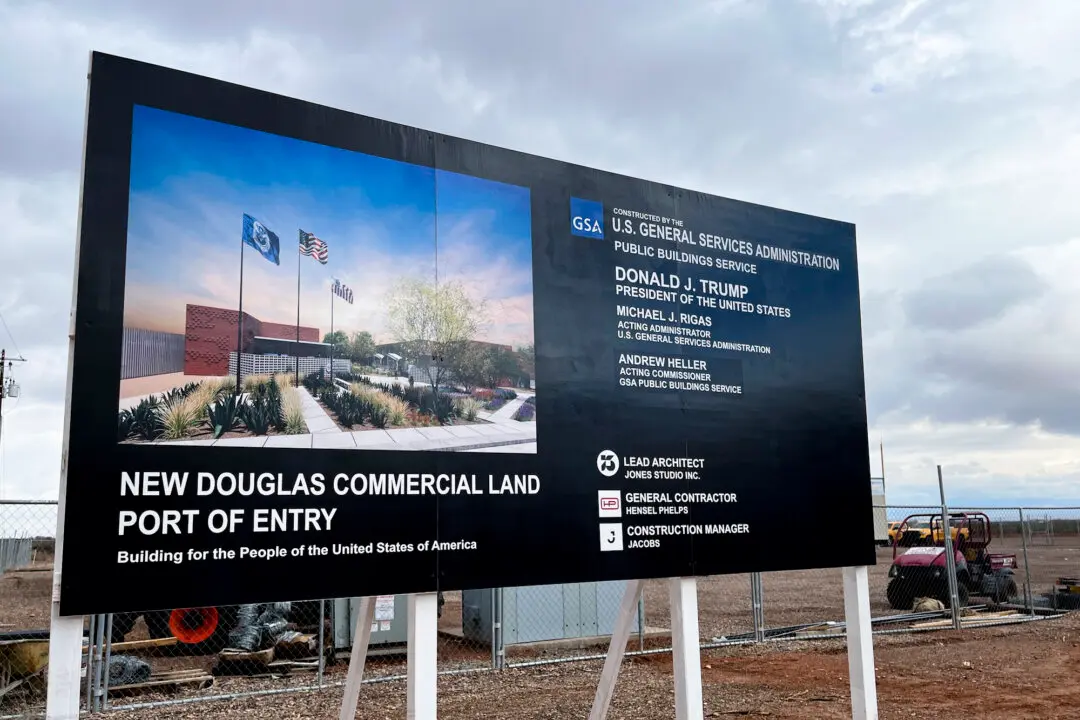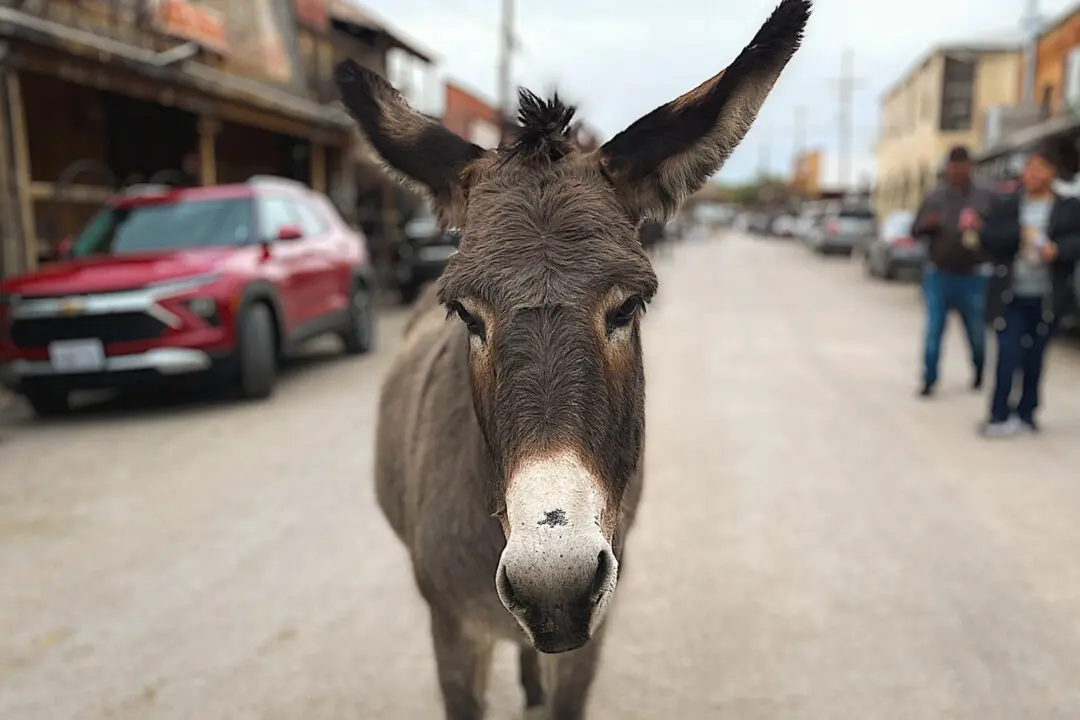NOGALES, Ariz.—An expert firearms witness in the murder trial of George Alan Kelly told a jury on April 9 that forensic tests showed no gunshot residue was present on the clothing of an illegal immigrant found fatally shot on Mr. Kelly’s property.
Aaron Brudenell, a forensic firearms specialist with the Arizona Department of Public Safety, also testified that the bullet casings found at the alleged crime scene were the same type of ammunition used in an AK-47 semi-automatic rifle.





